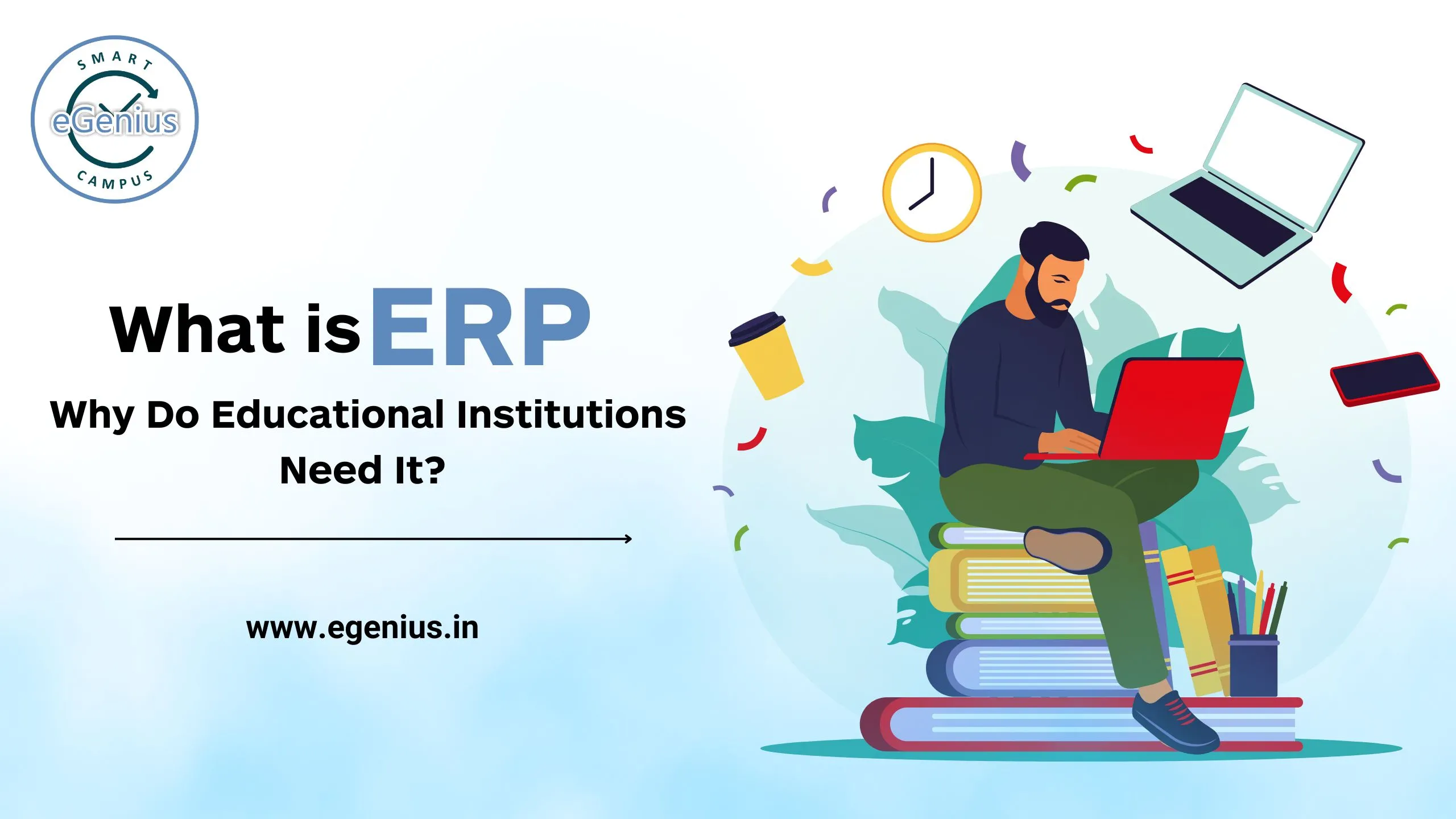ERP, or Enterprise Resource Planning, is a cutting-edge technology revolutionizing operations in educational institutions worldwide. This specialized tool streamlines processes, enhancing efficiency and productivity. So, why exactly are educational institutions embracing ERP system with such enthusiasm? Let’s delve deeper into the reasons behind their widespread adoption and the benefits they bring.
Table of Contents
- What is ERP System?
- Challenges in Educational Institutions
- Why Educational Institutions Need ERP
- ERP Solutions for Educational Institutions
- How to Choose the Right ERP System
- Future Trends
What is ERP System?
An ERP, or Enterprise Resource Planning system, is like super software. Why? Well, it takes many processes in a company and makes them work together. Now, picture a educational institutions using an ERP system. They use it for things like managing students, admitting new kids, handling money, and even organizing staff. Everything is all on one platform. This makes sharing info and decision-making faster, easier, and more efficient. Cool, right?
Challenges in Educational Institutions
- Data Management: Educational institutions deal with tons of information, like student details and teacher facts. Putting info in by hand can cause mistakes and take up precious time.
- Resource Allocation: Getting resources where they need to go is key for doing well in school. But without effective ways to do this, schools cannot give out their resources right. This can lead to not using enough resources or using too many.
- Communication Hurdles: When departments cannot talk easily, workflow gets choppy. Decisions take longer because they are not working together well.
Why Educational Institutions Need ERP
ERP system offer a holistic solution to the multifaceted challenges faced by educational institutions:
- Streamlined Operations: By centralizing data and processes, ERP system streamline administrative tasks, enabling staff to focus on strategic initiatives.
- Enhanced Data Accuracy: With real-time data updates and automated workflows, ERP system minimize errors, ensuring data accuracy and integrity.
- Improved Decision-Making: Access to comprehensive data empowers educational leaders to make informed decisions promptly, driving organizational success.
ERP Solutions for Educational Institutions
To address these challenges, ERP solutions for educational institutions should offer the following key features:
- Student Information Management: Student records are centralized. There’s management for enrollment. Marks are handled, and tracking academic growth is done.
- Financial Management: Planning budgets, keeping track of finances, handling staff pay, and governing purchases, all done automatically for smart resource use.
- Human Resource Management: Recruitment simplified. Tracking employee attendance. Checking how well they work. Helping them grow in their careers.
- Communication and Collaboration: Communication tools that are combined. They allow smooth chatting between students, teachers, parents, and school leaders.
- Analytics and Reporting: The ability to analyze data helps create understanding. This is key for making big decisions and for evaluating how well things are going.
How to Choose the Right ERP System
When selecting an ERP system for an educational institution, consider the following factors:
- Scalability: Ensure the ERP system can accommodate the institution’s current needs and future growth.
- User-Friendly Interface: opt for an intuitive interface that minimizes training requirements and enhances user adoption.
- Customization Options: Choose an ERP system that offers flexibility for customization to align with specific institutional requirements.
- Integration Capabilities: Assess the ERP’s compatibility with existing systems and its ability to integrate seamlessly.
- Vendor Support and Reputation: Select a reputable vendor with a record of accomplishment of successful ERP implementations and reliable customer support.
Future Trends
The future of ERP in education holds promising developments:
- AI (Artificial Intelligence) Integration: Analytics driven by AI and forward-thinking models strengthen choices, assisting with early actions for student achievement.
- Mobile Accessibility: Mobile devices are everywhere. Because of this, ERP system are making mobile accessibility a priority. This means stakeholders can get important info whenever they want, no matter where they are.
- Blockchain Technology: Adding blockchain will beef up our safety for data, making it clearer and less prone to issues from leaks or unwanted access.
ERP tools are a must-have for schools and universities grappling with today’s academic challenges. These tools ease tasks, improve data precision, and boost teamwork. Thus, they help schools concentrate on their main goal: promoting learning and top-notch academics. Looking forward, the ongoing changes in ERP tools promise to transform education, creating new chances for better efficiency and fresh ideas.
Explore the transformative power of ERP system tailored for educational institutions on our eGenius website. Discover how ERP streamlines administrative tasks, enhances resource management, and empowers educators to focus on student success. Join us to unlock the potential of integrated technology in education.














